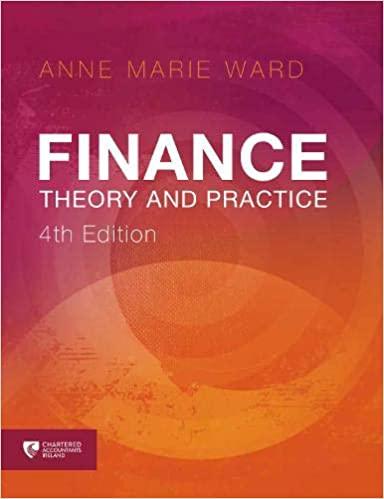Question
A GENERATOR SHORTAGE IN A NATURAL DISASTER Hurricane Katrina shut down electricity supplies over a wide area and increased the demand for portable generators. What
A GENERATOR SHORTAGE IN A NATURAL DISASTER Hurricane Katrina shut down electricity supplies over a wide area and increased the demand for portable generators. What is the fair way to allocate the available generators? If the market price is used, the outcome is efficient. Sellers and buyers are better off and no one is worse off. But people who own generators make a larger profit and the generators go to those who want them most and can afford them. Is that fair? On the Nozick rules view, the outcome is fair. On the fair outcome view, the outcome might be considered unfair. But what are the alternatives? They are command; majority rule; contest; first-come, first-served; lottery; personal characteristics; and force. Except by chance, none of these methods delivers an allocation of generators that is either fair or efficient. It is unfair in the rules view because the distribution involves involuntary transfers of resources among citizens. It is unfair in the results view because the poorest dont end up being made as well off as possible. At Issue Price Gouging Price gouging is the practice of offering to sell an essential item following a natural disaster at a price much higher than its normal price. When floods wiped out the Calgary Stampede and inundated the city in the summer of 2013, bags of ice, bottled water, and fruit were all in short supply. Stores with items for sale were getting excep tionally high prices. One store offered ice for $20 a bag. Another sold bottled water but not at the normal price. Angry shoppers took to social media to denounce price gougers and call for boycotts of their stores. In Favour of a Law Against Price Gouging Supporters of laws against price gouging say: Assignment Case Study INSTRUCTIONS 2021 - January 04, 2021 CDI In Favour of a Law Against Price Gouging Supporters of laws against price gouging say: It unfairly exploits vulnerable, needy buyers. It unfairly rewards unscrupulous sellers. In situations of extraordinary shortage, prices should be regulated to prevent these abuses and scarce resources should be allocated by one of the nonmarket mechanisms such as majority vote or equal shares for all. Should the price that a seller of ice may charge be regulated? The Economists Response Economists say that preventing a voluntary market transaction leads to inefficiencyit makes some people worse off without making anyone better off. In the figure below, when the supply of ice is much less than normal, the equilibrium price rises from $2 to $20 per bag. Calling the price rise gouging and blocking it with a law prevents additional units from being made available and creates a deadweight loss. Please provide answer. Thank you.
Step by Step Solution
There are 3 Steps involved in it
Step: 1

Get Instant Access to Expert-Tailored Solutions
See step-by-step solutions with expert insights and AI powered tools for academic success
Step: 2

Step: 3

Ace Your Homework with AI
Get the answers you need in no time with our AI-driven, step-by-step assistance
Get Started


